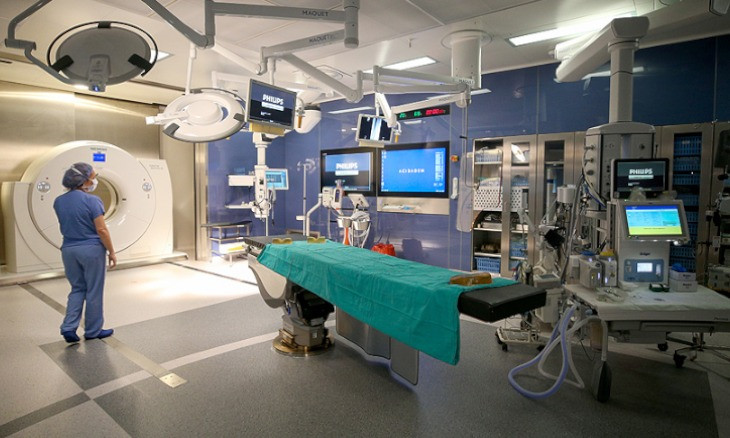Turkish hospitals seek discounts on $2.4 bln medical sector debts: Report
Turkish state and university hospitals are offering to repay debts totalling some 19 billion lira ($2.43 billion) to drugmakers and medical equipment firms, but with a discount, Reuters reported on Sept. 29.
Reuters
Turkish state and university hospitals are offering to repay debts totalling some 19 billion lira ($2.43 billion) to drugmakers and medical equipment firms, but with a discount, three sources told Reuters on Sept. 29.
 US pharma firms might abandon Turkish market over Ankara's failure to pay debts, ambassador warns
US pharma firms might abandon Turkish market over Ankara's failure to pay debts, ambassador warnsIf the deal is accepted, hospitals will repay the medical equipment makers at a 25 percent discount, sector officials said. State hospitals will pay pharmaceutical firms at a 6 percent discount and university hospitals will pay at an 18 percent discount, they added.
U.S. Ambassador David Satterfield raised the issue of unpaid debts at a conference last week, and on Sept. 29 at least one sector association said a 25 percent discount would be hard for local medical equipment providers to swallow.
But the sources said Turkey’s Finance Ministry signed off on the discounts proposal and applications from creditor companies could begin as soon as Sept. 29.
“All the debt will be paid after being restructured. With this aim, state hospitals and university hospitals have begun accepting applications by companies owed as of today,” one source with knowledge of the matter said.
The Finance Ministry declined to comment.
 Local medical device firms warn gov't that if debts remain unpaid, health services might be disrupted
Local medical device firms warn gov't that if debts remain unpaid, health services might be disruptedSeparately on Sept. 29, Finance Minister Berat Albayrak said that deals to solve problems in the health sector would be signed as soon as Sept. 29 or Sept. 30.
The portion of the 19 billion lira to be restructured will depend on how many companies accept the deal. Two sources said the majority of the debt was owed to domestic companies.
Satterfield said last week that Ankara owes $2.3 billion to pharmaceutical companies, including U.S. ones, and warned that they would leave Turkey unless they were paid.
Health Minister Fahrettin Koca said on Sept. 25 that Satterfield’s comments were “unfortunate”, in part because talks on equipment had begun, and there was “no issue” in general with pharmaceutical companies.
Metin Demir, head of the Health Industry Employers’ Association of Turkey (SEİS), said 90 percent of companies in the medical equipment sector were small to medium sized and not all could cope with a 25 percent discount, after accepting an earlier one.
“These discounts are creating a problem for the sustainability of our companies,” he said.
